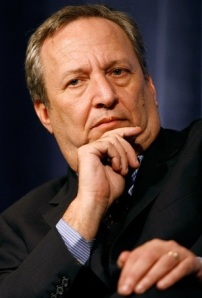Dies ist der vierte Beitrag unserer kleinen Roboter-Serie. Anbei – zur Bequemlichkeit unser LeserInnnen – die Links zu den bisher erschienenen Beiträgen.
- Roboter statt Arbeitnehmer (1): Rückgang der US Arbeitseinkommensquote trotz Reshoring, von Gerold K.B. Weber
- Roboter statt Arbeitnehmer (2): Technologische und marktinduzierte Arbeitslosigkeit, von Alfred Fels
- Roboter statt Arbeitnehmer (3): Eine von zwei möglichen Erklärungen der fallenden Arbeitseinkommensquote?, von Gerold K.B. Weber
Die Neuauflage der Roboter-Diskussion enthält einige Gedankenexperimente und Zukunfts-Szenarien. Wir halten diese für anregend und widmen ihnen daher dieses Posting.
Orientieren wir uns zunächst an Wikipedia:
„Ein Gedankenexperiment (oder Gedankenversuch) ist ein gedankliches Hilfsmittel, um bestimmte Theorien zu untermauern, zu widerlegen, zu veranschaulichen oder weiter zu denken.“
Dies ist es, was wir wollen: geeignete Gedankenexperimente rund um das Roboter-Thema finden, die uns helfen, ökonomische Theorien besser zu verstehen und weiterzudenken.
Mit dem Keynesianer Robert Skidelsky sehen wir das Roboter-Bild als rhetorische Stilfigur, als Metonymie für alle Arten von Automatisierung: Software und softwaregesteuerte Hardware zum Ersatz menschlicher Arbeit. Er fragt zunächst in seinem empfehlenswerten aktuellen Beitrag „The Rise of the Robots“ :
„What impact will automation – the so-called ‚rise of the robots‘ – have on wages and employment over the coming decades?“
Es folgt sein „Human Robot Mechanics“-Gedankenexperiment …
„Imagine a handful of technicians replacing a fleet of taxi drivers and truckers, a small cadre of human mechanics maintaining a full robot workforce, or a single data analyst and his software replacing a bank of quantitative researchers. What produces value in such an economy will no longer be wage labor.“
… mit dem Lösungsvorschlag der fairen Verteilung der Produktivitätsgewinne nebst Arbeitszeitverkürzung:
„If one machine can cut necessary human labor by half, why make half of the workforce redundant, rather than employing the same number for half the time? Why not take advantage of automation to reduce the average working week from 40 hours to 30, and then to 20, and then to ten, with each diminishing block of labor time counting as a full time job? This would be possible if the gains from automation were not mostly seized by the rich and powerful, but were distributed fairly instead.
Rather than try to repel the advance of the machine, which is all that the Luddites could imagine, we should prepare for a future of more leisure, which automation makes possible. But, to do that, we first need a revolution in social thinking.“
Der Ökonom und ehemalige US Finanzminister Larry Summers entwickelte zu demselben Thema sein schlichtes „Doer“-Gedankenexperiment und präsentierte auch gleich dessen Konsequenzen, wie Economics Ph.D. Student Owen Zidar im Juni 2012 berichtete:
„At a recent talk at Berkeley, Larry Summers asked us to engage in the following thought experiment.
Suppose that a new technology called “the Doer” will be created tomorrow. Doers can do anything flawlessly. They can build a house, give a massage, or make a guitar.
What would the world of Doers look like?
- Cheaper, high quality goods would proliferate.
- The price of raw materials would increase as raw inputs for doers would become more scarce and thus more valuable.
- People who can think of new things for Doers to do or of new ways for Doers to do things will make a lot of money.
- For everyone else, the value of working for an hour will be nearly zero (since Doers can do everything already, no extra value is created). Therefore, hourly wages will go to zero.
Citing 3D printers and Google’s driverless cars, Summers argued that while we aren’t quite living in the world of Doers, we are perhaps 15 or 20% of the way there.“
Krugman entwirft in seinem Posting „Is Growth Over“ vom 26.12.2012 das folgende „Fantasy Technology Scenario“ …
„Consider for a moment a sort of fantasy technology scenario, in which we could produce intelligent robots able to do everything a person can do. Clearly, such a technology would remove all limits on per capita GDP, as long as you don’t count robots among the capitas. All you need to do is keep raising the ratio of robots to humans, and you get whatever GDP you want.“
… und stellt sich folgende Auswirkungen vor:
„Ah, you ask, but what about the people? Very good question. Smart machines may make higher GDP possible, but also reduce the demand for people — including smart people. So we could be looking at a society that grows ever richer, but in which all the gains in wealth accrue to whoever owns the robots.“
In seinem theoretisch relevanten Posting zu „Capital-biased Technological Progress“ von demselben Tag verwendet er ein etwas zweifelhaftes (und von Dean Baker zu Recht kritisiertes) ökonomisches Modell und erreicht damit eine erste interessante Abschätzung der Auswirkungen auf Löhne und funktionale Einkommensverteilung:
„What will the distribution of income be in this case? …
So what happens? It’s obvious from the figure that wages fall relative to the cost of capital; it’s less obvious, maybe, but nonetheless true that real wages must fall in absolute terms as well. In this specific example, technological progress reduces the real wage by a third, to 0.667, while the cost of capital rises to 2.33.“
Wir halten fest:
- Die Roboter-Gedankenexperimente renommierter Ökonomen beziehen sich auf eine Ökonomie, in der Roboter (eigentlich: software-gestützte Automatisierung) fast alle oder alle Waren und Dienstleistungen besser und schneller produzieren können als der Mensch.
- Gefragt wird nach der Zukunft von Arbeit und Arbeitszeit, dem Reallohn, sowie der funktionalen Einkommensverteilung, und nach den gesellschaftlichen Transformationen, die wir in dieser neuen Welt eventuell benötigen.
- Weitere Fragen sollten sich auf die Herstellungskosten für Roboter, sowie auf den Preis der durch Roboter produzierten Waren und Dienstleistungen beziehen.
Was noch weitgehend fehlt, ist der zielgerichtete Einsatz der beschriebenen Gedankenexperimente, um ökonomische Theorien zu untermauern, zu widerlegen, zu veranschaulichen oder weiter zu denken.
Wir wollen dazu beispielhaft einige Fragen äußern und folgen dabei einem chronologischen Ansatz:
- Wie ließe sich der Übergang zur Roboter-Ökonomie im Sinne der Marx’schen Arbeitswertlehre verstehen?
- Was läßt sich zum Wert der Waren und der Arbeit aus Sicht des integrativen Produktionsansatzes von Piero Sraffa und seines Hauptwerkes ‚Production of Commodities by Means of Commodities‘ sagen?
- Und wie passt die Roboter-Ökonomie mit Michal Kalecki’s Preistheorie zusammen, bei der Unternehmen einen Aufschlag (mark-up) auf die Kosten kalkulieren, der stark vom Monopolgrad abhängt?
- Neugierig wären wir auch darauf, was marginalistische ökonomische Theorien wie etwa Neoklassik und neoklassische Synthese zur Roboter-Ökonomie mit ihrem weitgehenden Verschwinden des Arbeitsmarkts beitragen können.
Genügend Stoff für kluge Dissionsbeiträge professioneller Ökonomen, sollte man meinen. Man fragt sich, warum diese interessante und relevante Diskussion nicht schon längst im Lichte der herrschenden und alternativen ökonomischen Theorien vertieft wird. Haben die Theorien oder deren Praktikanten etwa so wenig beizutragen?




